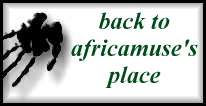The Separate Rose
Pablo Neruda
(Easter Island, 1973)
translation by Ben Belitt
II: THE MEN
The truth of my prologue is this: Down with sleazy romanticists!with experts in the ineffable!
I’m just like the others: the Colombian lady-professor,
the Philadelphian Rotarian, the drummer
from Paysandú who cashed in a bundle
to get here. In a mishmash of languages, by dissimilar routes we all come upon: Silence.
VII: THE ISLAND
When the colossuses multiplied,walked upright into their own,
peopled the island with stone noses
and lived to beget their descendants: children
of lava and wind, grandsons
of ashes and air, great footsteps
were heard in the island:
the hands of the wind,
the criminal cyclone,
Oceania’s persistency
never worked with such fury.
The tremendous, pure heads,
long in the neck and lugubrious,
with jawbones of giants, erect
in the pride of their solitude -
those presences,
preoccupied,
arrogant presences.
O lone, pensive dignitaries -
who would ever presume, who would dare to come close
with their questions, or challenge
those questioning images?
They are the spawn of those askers
who exceeded the narrow constraints
of the island, moved out, from its minimal waist
towards the whole of an ocean - to the human beginnings of things, and their absences.
Some of the bodies will never assume their full stature,
their arms shapelessly locked
into craters, asleep:
bedded down in calcareous rose,
never lifting their eyes to the sea,
sleeping the leviathan’s horizontal sleep,
stone larvae of mystery,
they lie now as when flung by the wind when it fled from that country
and the breed of the children of lava was over.

Pablo Neruda's Separate Rose, but with a different translator
La rosa separada
Pablo Neruda
(Isla de Pascua, 1973)
II: LOS HOMBRES
Es la verdad del prólogo. Muerte al romanticón,al experto en las incomunicaciones:
soy igual a la profesora de Columbia,
al rotario de Filadelfia, al comerciante
de Paysandú que juntó plata
para llegar aquí. Llegamos de calles diferentes,
de idiomas desiguales, al Silencio.
VII: LA ISLA
Cuando prolificaron los colososy erguidos caminaron
hastar poblar la isla de narices de piedra
y, activos, destinaron descendencia: hijos
del viento y de la lava, nietos
del aire y la ceniza, recorrieron
con grandes pies la isla:
munca trabajó tanto
la brisa cons sus manos,
el ciclón con sus crimen,
la persistencia de la Oceanía.
Grandes cabezas puras,
altas de cuello, graves de mirada,
gigantescas mandíbulas erguidas
en el orgullo de su soledad,
presencias,
presencias arrogantes,
preocupadas.
Oh graves dignidades solitarias
quién se atrevió, se atreve
a preguntar, a interrogar
a las estatuas interrogadoras?
Son la interrogación diseminada
que sobrepasa la angostura exacta,
la pequeña cintura de la isla,
y se dirige al grande mar, al fondo
del hombre y de su ausencia.
Algunos cuerpos no alcanzaron a erguirse:
sus brazos se quedaron sin forma aún, sellados
en el cráter, durmientes,
acostados aún en la rosa calcárea,
sin levantar los ojos hacia el mar
y las grandes criaturas de sueño horizontal
son las larvas de piedra del misterios:
aquí las dejó el viento cuando huyó de la tierra:
cuando dejó de procrear hijos de lava.
Poem 20, by Pablo Neruda,
the most beautiful poem I have ever read, and with a far better English translation that the ones above.
I had the privilege of visiting Easter Island in June 1998:
enter here for photographs and impressions


|

|

|

all original material (text, graphics, photographs and programming) © 1998-2002
Sally Smith
http://geocities.datacellar.net/africamuse